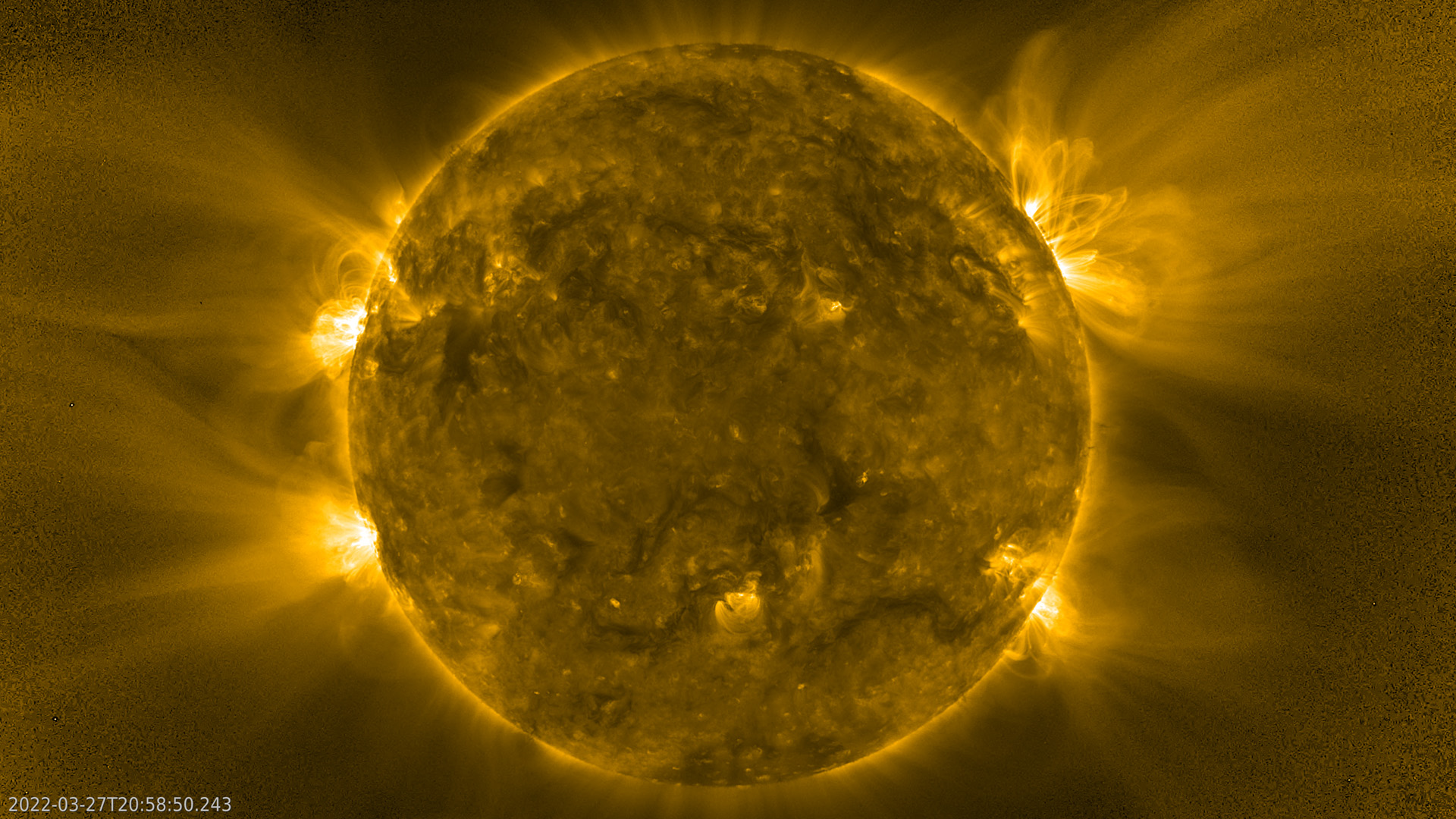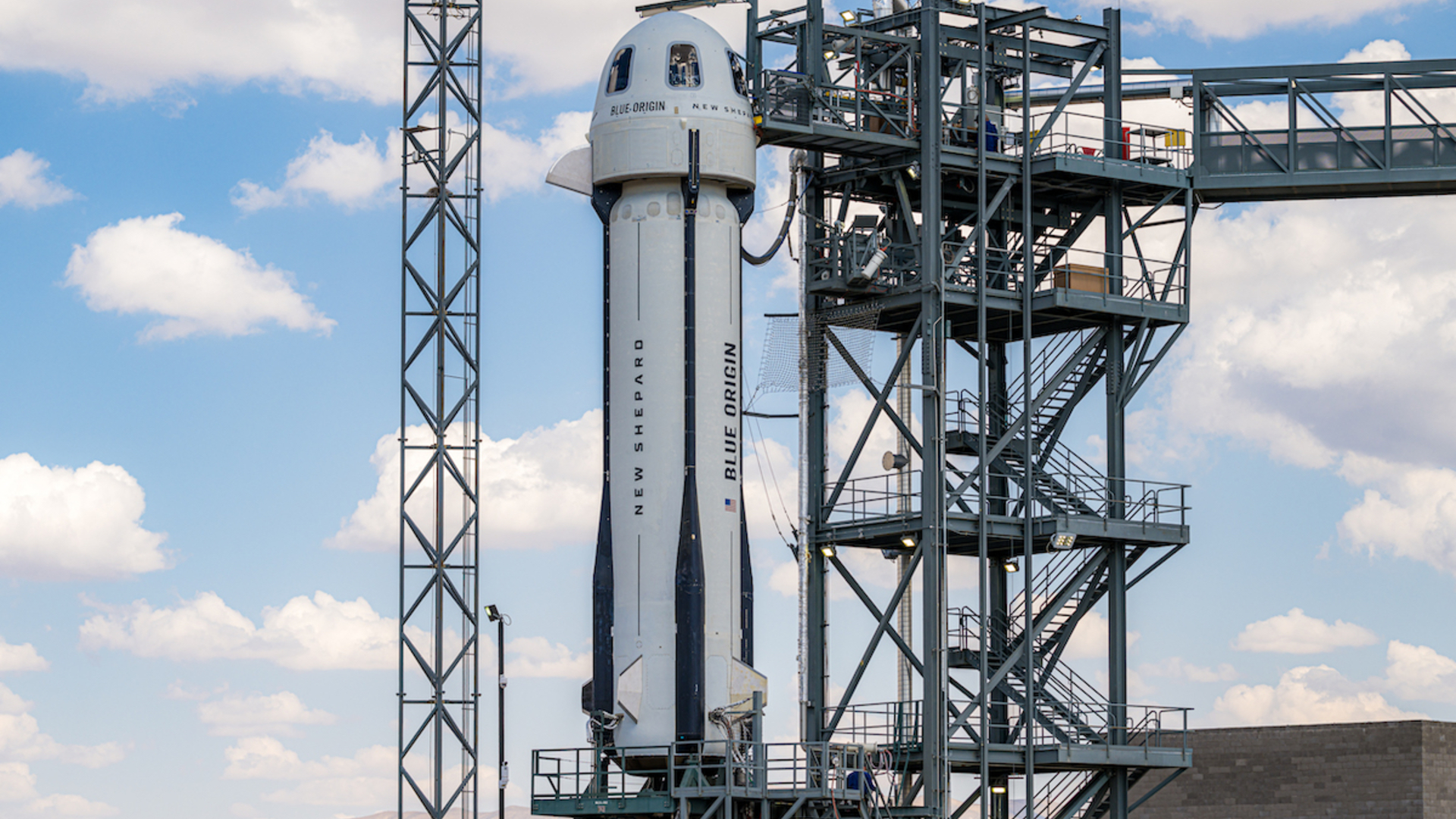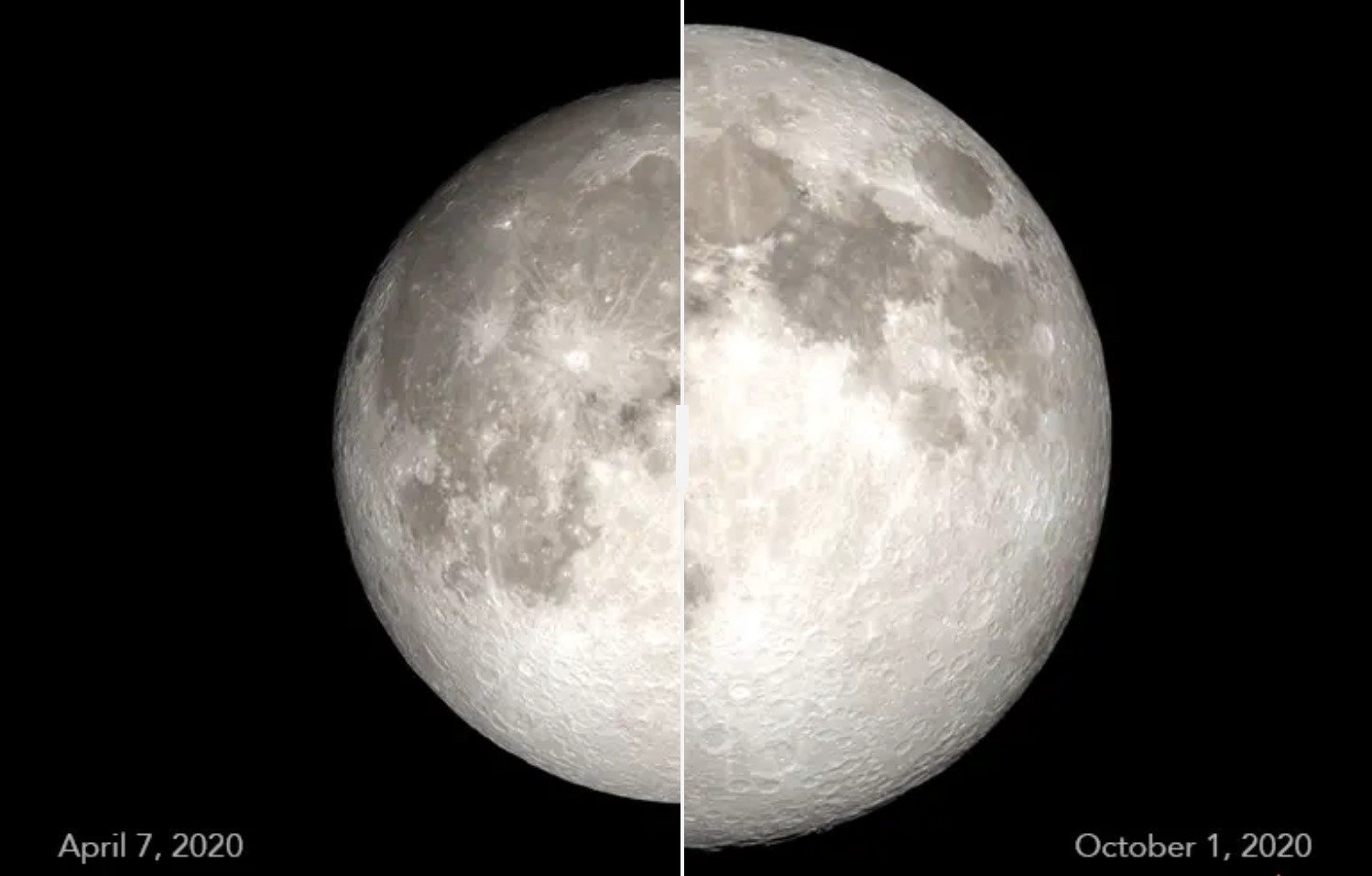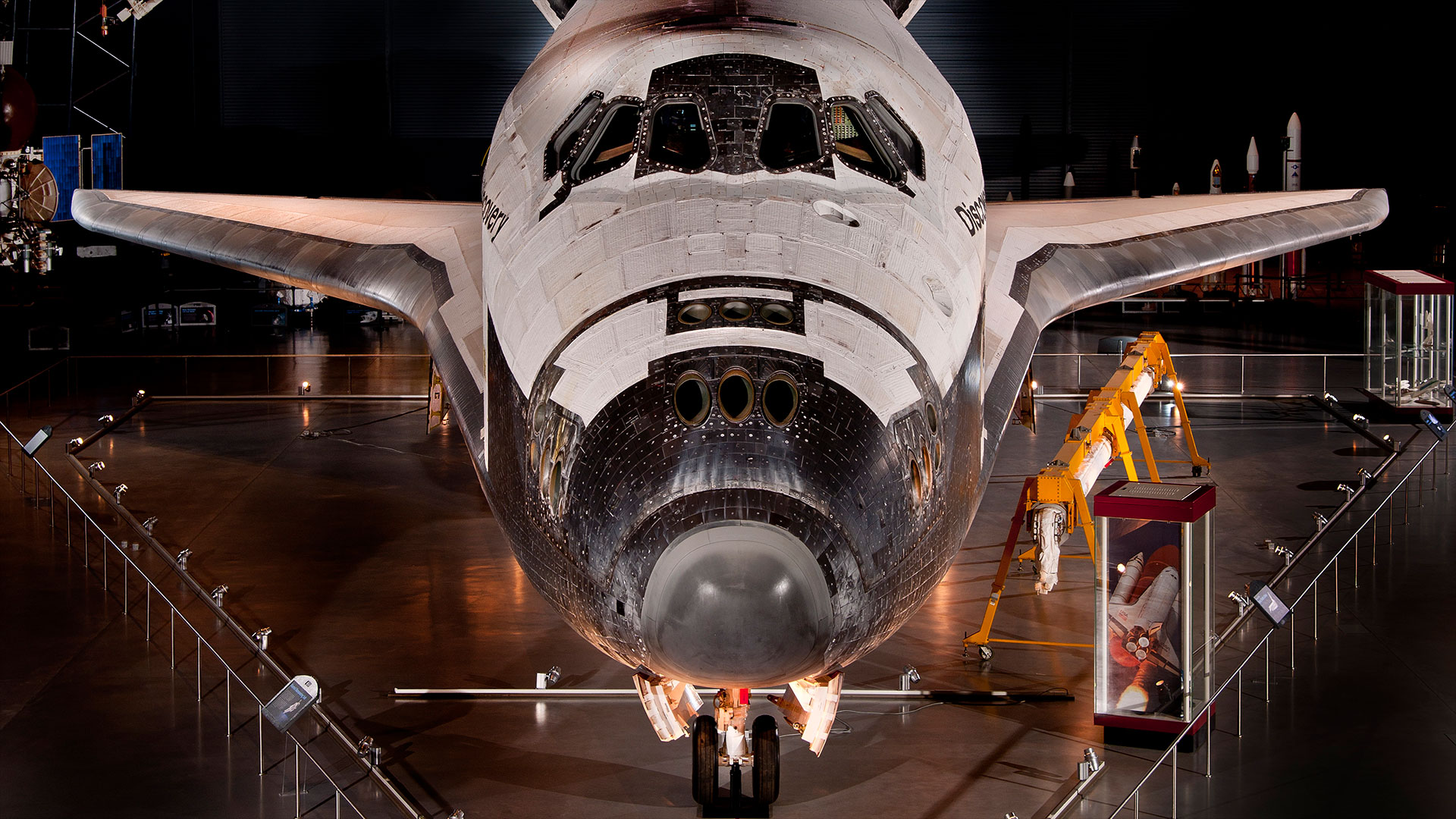Update for 2 pm ET: LAUNCH FAILURE - Astra reports that its TROPICS-1 mission has ended in failure after its Launch Vehicle 0010 Rocket's second stage engine shut down earlier than planned. The rocket was unable to deliver its two TROPICS cubesats to orbit for NASA. Read our full launch failure story.
Astra aims to notch its second consecutive satellite-deploying success today.
The California-based startup is targeting Sunday (June 12) for the launch of two tiny cubesats for NASA's Time-Resolved Observations of Precipitation structure and storm Intensity with a Constellation of Smallsats (TROPICS) mission.
Astra and NASA will attempt the liftoff during a two-hour window that opens at 12 p.m. EDT (1600 GMT). The launch will take place from Cape Canaveral Space Force Station in Florida and involve Astra's 43-foot-tall (13 meters) Launch Vehicle 0010 (LV0010). You can watch it live here at Space.com, courtesy of Astra, or directly via the company and its livestream partner, NASASpaceflight.com.
Video: Watch Astra's Rocket 3.2 launch on its 1st successful flight
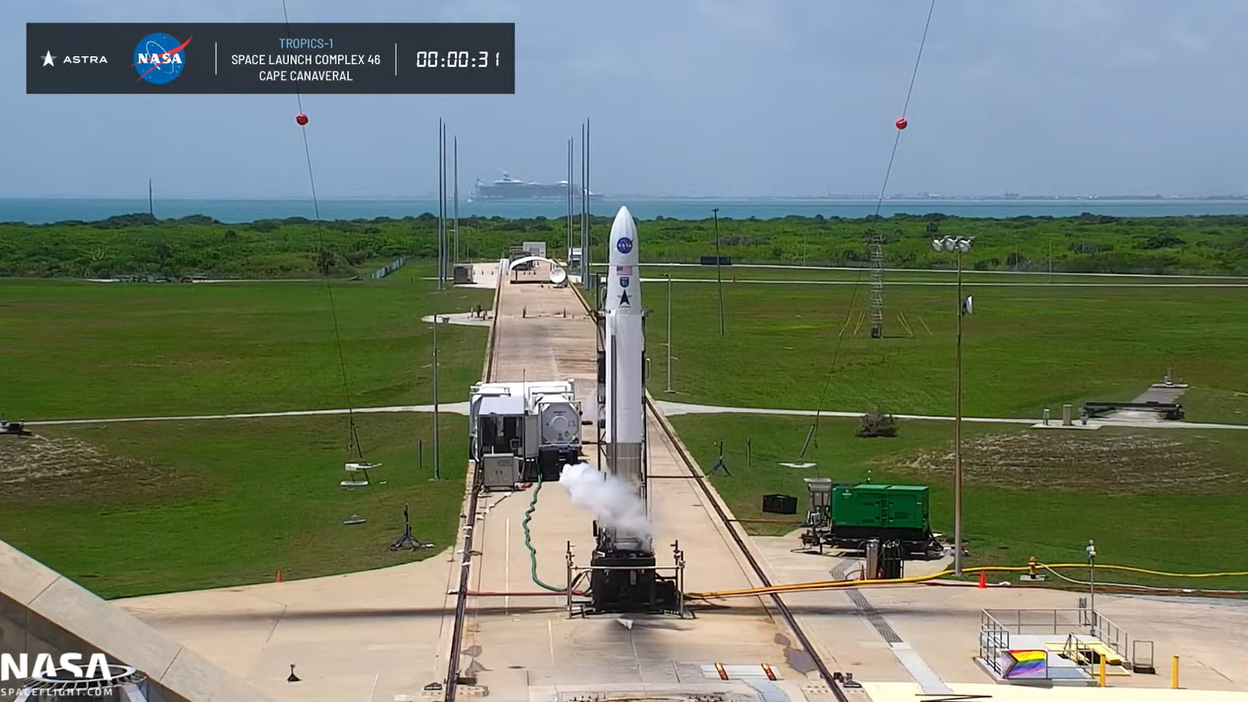
The two-stage LV0010 appears to be ready to go; the rocket aced a static fire test — a routine preflight check in which a launcher's engines are fired while the vehicle remains anchored to the ground — earlier this week, Astra announced via Twitter.
LV0010's flight will come about three months after Astra's first-ever full mission success. On March 15, LV0009 deployed a variety of customer payloads into their designated orbit shortly after lifting off from the Pacific Spaceport Complex on Alaska's Kodiak Island.
Get the Space.com Newsletter
Breaking space news, the latest updates on rocket launches, skywatching events and more!
Successful static fire for @NASA TROPICS-1! #AdAstra pic.twitter.com/Ibm2GvW2GyJune 6, 2022
Astra had reached orbit before, but that was on a test flight that did not carry any operational satellites.
The upcoming launch will be the first of three TROPICS flights for Astra this year, if all goes according to plan. Each of those missions will loft two TROPICS cubesats, which will study the formation and evolution of hurricanes in great detail.
The TROPICS network will allow researchers to monitor the development of tropical cyclones nearly every hour — far more frequently than is possible with currently operational weather satellites, NASA officials have said.
Editor's note: This story was updated twice on Saturday, June 11, to include the launch time announced by Astra and to add a link to the Astra/NASASpaceflight.com livestream.
Mike Wall is the author of "Out There" (Grand Central Publishing, 2018; illustrated by Karl Tate), a book about the search for alien life. Follow him on Twitter @michaeldwall. Follow us on Twitter @Spacedotcom or on Facebook.
Join our Space Forums to keep talking space on the latest missions, night sky and more! And if you have a news tip, correction or comment, let us know at: community@space.com.

Michael Wall is a Senior Space Writer with Space.com and joined the team in 2010. He primarily covers exoplanets, spaceflight and military space, but has been known to dabble in the space art beat. His book about the search for alien life, "Out There," was published on Nov. 13, 2018. Before becoming a science writer, Michael worked as a herpetologist and wildlife biologist. He has a Ph.D. in evolutionary biology from the University of Sydney, Australia, a bachelor's degree from the University of Arizona, and a graduate certificate in science writing from the University of California, Santa Cruz. To find out what his latest project is, you can follow Michael on Twitter.






